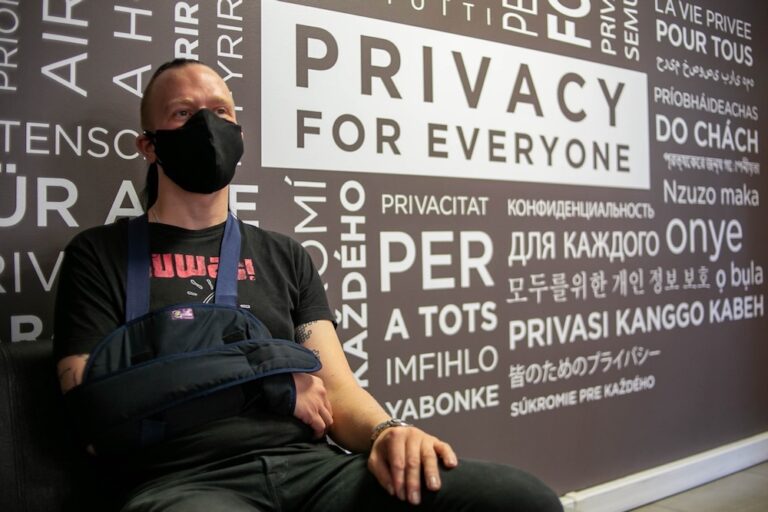(IPYS/IFEX) – Jorge Vivanco Mendieta, deputy director of and columnist for the Guayaquil daily “Expreso”, is currently awaiting a ruling on the second of two legal actions launched against him by Fernando Rosero, member of parliament for the Ecuadorian Roldosist Party (Partido Roldosista Ecuatoriano, PRE). Vivanco has asked for protection after receiving threats while awaiting […]
(IPYS/IFEX) – Jorge Vivanco Mendieta, deputy director of and columnist for the Guayaquil daily “Expreso”, is currently awaiting a ruling on the second of two legal actions launched against him by Fernando Rosero, member of parliament for the Ecuadorian Roldosist Party (Partido Roldosista Ecuatoriano, PRE).
Vivanco has asked for protection after receiving threats while awaiting the court’s ruling. The journalist told IPYS that he is patiently awaiting the ruling, despite being concerned because of the way in which the plaintiff has acted.
In mid 2001, Rosero, assistant to former Ecuadorian president Abdalá Bucaram Ortiz, filed a criminal case against the journalist for alleged insult and disrespect of his honour. In a separate civil case, Rosero is seeking compensation of US$1 million for a 15 June 2001 column by Vivanco, which appeared in “Expreso”, entitled “The generals do not defend themselves”.
In the article, the columnist criticised certain military officers for not defending themselves against Rosero’s insults. Rosero had referred to the military officers who took part in a scandal involving arms purchases during the 1995 confrontation between Ecuador and Peru as “chatarreros del Cenepa” [in reference to the Cenepa conflict and the purchase of “chatarra” arms, meaning old or useless].
The two lawsuits brought forward by Rosero against Vivanco have proceeded in different directions. The criminal case has reached the final stage and the court is expected to pronounce a ruling soon. Meantime, as concerns the civil lawsuit, Guayas Fifteenth Civil Court Judge José Rendon Alvarado ruled in favour of Vivanco, noting that there was insufficient proof against him. Unsatisfied with the ruling, Rosero appealed the First Instance Court’s decision. He maintained that Rendon Alvarado’s sentence is an indication of the serious institutional crisis plaguing the judicial system and warned that in the near future he would have to take the law “into his own hands.”
According to Vivanco, Rosero’s appeal was absurd, threatening and cause for concern. The journalist noted that this is not the first article that has had a big impact on his life. He recalled criticising irregularities in the administration of Alberto Dahik, vice-president between 1992 and 1995. One of Vivanco’s articles uncovered a scandal highlighting corruption that resulted in a criminal case against the former vice-president, as well as his leaving office and choosing to live in exile in Costa Rica, where he still resides.
Vivanco has been practicing journalism for more than 45 years and his editorials have appeared in a number of the country’s newspapers. Today, aged 73, he is facing two lawsuits of this type for the first time for having written an article that has prompted threats from his accuser.
Recommended Action
Send appeals to authorities:
– urging them to provide protection for the journalist’s safety in the face of Rosero’s threats
– calling on them to ensure that due process is followed in both the civil and criminal cases and that they are resolved impartially
Appeals To
Gustavo Noboa
President of the Republic
E-mail: saladeprensa@presidencia.ec-gov.net
Armando Bermeo
Supreme Court Chair
E-mail: pres-csj@access.net.ec
Ramiro Larrea
Anti-Corruption Committee Chair
E-mail: coantico@ecuanex.net.ec
Marco Morales
Constitutional Tribunal Chair
Fax: +593 2 2 569 861
Flora Peroaño de Simancas
President of the National Journalists Union
E-mail: simancas@hoy.net
Please copy appeals to the source if possible.


